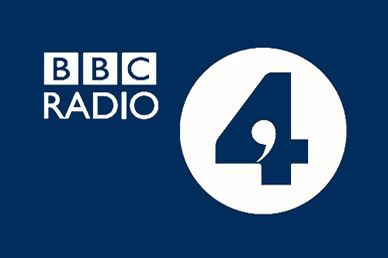Natural Consumers: Born to 'Keep Up With the Jones'
Keeping up with the Joneses' is not just a modern world phenomenon, but seemingly part of our DNA
Professor Nick Chater, will show in The Human Zoo on BBC Radio Four today (Tuesday 24/06/14) that our brains are hot-wired to think comparatively and so propelling our inclination for consumerist competition with our neighbours.
Scientific experiments have shown how we make judgements instinctively using comparison and this extends when valuing houses or cars or deciding how happy or successful we are.
“There is no absolute value to a house, we come to a price by comparing it with other houses in our street,” said Professor Chater, of Warwick Business School. “It is the same when we ask 'how good is a football team?' We do this by comparing them to other teams.”
“We are so used to doing this that we don't even notice, our brains are natural comparison machines - we can't measure in absolute terms. For example, a 19th century experiment asked people to put one hand in a bucket of cold water and one in a bucket of hot water. They were then told to put both hands in a bucket of tepid water. The water is the same temperature but the hand that was hot now feels cold, and the one that was cold now feels hot - so even your basic senses use comparisons not absolute. It is built in.”
And this is the basic impulse for 'keeping up with the Jones', as we compare ourselves to our peers we look to have comparatively better cars, better clothes, better handbags and so do they, so we keep pushing each other along.
“This comparative impulse raises a problem in society – the dark side of consumerism,” says Professor Chater, who is head of the Behavioural Science Group at Warwick Business School. “Everybody values their car or house relative to other cars or houses. That means as everybody gets wealthier they get a nicer house or car. But because people think comparatively, they don't gain any benefit, they don't feel happier. They still have the third nicest car among their friends.
“Some economists are now concerned that, as a society, we are in danger of putting enormous resources into competitions with each other that are getting us nowhere. We are on a treadmill, getting more and more goods so that we are keeping up with the Joneses, but at just the same rate, the Joneses are keeping up with us!”
This inclination to think comparatively is shown in another experiment, where people can pay to avoid mild (but unpleasant) electric shocks. Suppose there are three levels of shock, low, medium and high. It turns out that people will pay up to 50 per cent more to avoid the medium shock when it follows a 'low' shock (and so, by comparison, seems unpleasant) than when precisely the same medium shock follows a 'high' shock (and so, by comparison, doesn't seem so bad).
“This competition and instinct to compare can have positive outcomes,” said Professor Chater. “A continual 'competition' to be healthier, have more friends, have a better education may be positive, if we believe these things are good inabsolute terms- that is, we value them whether or not the Joneses have them too.
“But for many consumer goods, keeping up with the Joneses may be all we care about. If we all spend more on weddings, fast cars, or designer handbags, then, in comparative terms, no-one feels any happier. This raises the danger that such spending is self-defeating, from the point of view of a society as a whole.”
Listen to The Human Zoo today (Tuesday 24/06/14) at 3.30pm on BBC Radio Four.
- Ends -
To interview Professor Nick Chater, contact:
For more information, please contact:
Ashley Potter
Press & PR Executive, Warwick Business School
T: +44 (0)24 7657 3967
M: +44 (0)7733 013264
Warwick Business School has in-house broadcasting facilities for TV and radio. We have an ISDN line for radio and for television interviews we have the Globelynx TVReady network, a list of Warwick experts is available. If you are looking for an expert in an area that is not listed, please contact Ashley Potter. Our ISDN number is 024 7647 1287. The Globelynx number is 02476 697332
Notes to Editors:
Warwick Business School, located in central England, is the largest department of the University of Warwick and the UK's fastest rising business school according the Financial Times. WBS is triple accredited by the leading global business education associations and was the first in the UK to attain this accreditation. Offering the full portfolio of business education courses, from undergraduate through to MBAs, and with a strong Doctoral Programme, WBS is the complete business school. Students at WBS currently number around 6,500, and come from 125 countries. Just under half of faculty are non-UK, or have worked abroad. WBS Dean, Professor Mark P Taylor, is among the most highly-cited scholars in the world and was previously Managing Director at BlackRock, the world's largest asset manager.
Press release distributed by Pressat on behalf of Pressat Wire, on Tuesday 24 June, 2014. For more information subscribe and follow https://pressat.co.uk/
BBC Radio 4 Instinctive Judgement Comparative Impulse Human Nature The Human Zoo BBC Business & Finance Retail & Fashion
You just read:
Natural Consumers: Born to 'Keep Up With the Jones'
News from this source:





